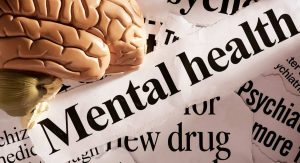When Progress Feels Like It’s Slipping Away
What does relapsing mean in mental health? It’s that moment when, even after all the progress — the therapy, the medication, the hard inner work — the darkness starts to creep back in. You’ve been doing everything right, maybe even feeling okay for the first time in a while. And then, suddenly, the heaviness returns, the racing thoughts spiral, and the hopelessness you thought you’d left behind makes its way back in.
If you’ve ever found yourself wondering, “Why is this happening again?” — you’re not alone. That unsettling feeling is what many people describe as a relapse in mental health.
In this article, we’ll break down what relapsing really means in the context of mental health, why it happens, how to recognize it early, what you can do to prevent or manage it, and how to rebuild if it does occur. Whether you’re navigating anxiety, depression, bipolar disorder, PTSD, or substance use recovery, this guide will offer clarity, compassion, and practical steps.
Understanding Mental Health Relapse: What Does It Actually Mean?

Definition of a Mental Health Relapse
In simple terms, relapsing in mental health refers to the return or worsening of symptoms after a period of improvement or stability. It doesn’t always mean going back to square one — but it does mean that symptoms that were once under control are re-emerging and interfering with daily life.
This might look like:
- A person with depression experiencing deep sadness and lack of motivation again
- Someone with anxiety having panic attacks after months of calm
- A person in recovery returning to substance use
- Someone with schizophrenia experiencing hallucinations after a stable period
Relapse is different from a temporary bad day. It usually involves a pattern or progression of returning symptoms over days or weeks that impact functioning, relationships, or quality of life.
Why Do Mental Health Relapses Happen?
It’s Not About Weakness — It’s About Triggers and Patterns
Mental health is complex. Even with the right tools and treatment, symptoms can return. Here are some common reasons people experience relapse:
1. Stress or Life Changes
Major transitions — job loss, divorce, financial pressure, grief — can destabilize even a well-managed mental health condition.
2. Stopping Treatment Prematurely
Feeling better can lead some people to stop therapy or discontinue medication without medical guidance, often leading to relapse.
3. Substance Use or Self-Medication
Alcohol, recreational drugs, or even misusing prescription meds can interfere with brain chemistry and mental stability.
4. Poor Sleep and Physical Health
Lack of sleep, poor diet, and no exercise can contribute to mental fatigue and lower your emotional resilience.
5. Environmental or Seasonal Triggers
Some people are sensitive to seasonal changes (like winter depression), certain social settings, or reminders of past trauma.
6. Burnout or Emotional Overload
Taking on too much or ignoring early warning signs can push your nervous system into overdrive, setting off symptoms again.
Early Warning Signs of a Mental Health Relapse

Knowing What to Watch For
Catching relapse early is key. The sooner you notice what’s happening, the sooner you can respond.
Common early signs include:
- Changes in sleep (too much or too little)
- Increased irritability or restlessness
- Withdrawal from others or activities you enjoy
- Feeling overwhelmed more easily
- Physical symptoms like fatigue, headaches, or stomach issues
- Recurring negative thoughts or hopelessness
- Increased use of substances or unhealthy coping strategies
Everyone’s warning signs are different. Keeping a personal list can help you or loved ones notice when you’re starting to slip.
The Benefits of Understanding and Addressing Relapse
Why This Awareness Matters
Relapsing doesn’t mean you’ve failed. It means your brain and body are reacting to something — and that message matters.
When you understand relapse:
- You can respond instead of react
- You’re more likely to seek help early
- You stop seeing it as a personal flaw
- You can adjust your plan or supports
- You learn resilience, not defeat
How to Manage a Mental Health Relapse
A Grounded, Step-by-Step Approach
Step 1: Acknowledge Without Shame
Recognizing you’re slipping is brave. Don’t waste energy blaming yourself. Awareness is progress.
Step 2: Reach Out
Talk to your therapist, doctor, or a trusted friend. Relapse doesn’t mean you’re alone. In fact, community support often shortens the length and severity of relapse.
Step 3: Revisit Your Coping Tools
Pull out the strategies that worked before — grounding exercises, journaling, setting boundaries, or medication adjustments. It’s okay if you need a refresher.
Step 4: Prioritize Basics
Eat, sleep, hydrate. These may seem basic, but they’re foundational when your mental energy is low.
Step 5: Adjust Your Environment
Create a low-stress space. Reduce exposure to triggering content, avoid negative people, and make time for restorative activities.
Step 6: Be Patient With Yourself
Relapse recovery isn’t linear. Some days will feel better than others. Celebrate small wins.
Real-Life Examples: How Relapse Shows Up Differently
Case 1: Anxiety and the Return of Panic David had been managing his panic disorder for over a year. When he changed jobs, the increased pressure led to trouble sleeping and rising anxiety. He ignored it until panic attacks returned. Recognizing the signs, he returned to therapy and added relaxation training, catching the relapse early.
Case 2: Depression After Medication Stopping Maria was diagnosed with major depression in college. After years of feeling stable, she stopped her antidepressants without consulting her doctor. Within two months, symptoms crept back. A relapse plan helped her get back on track.
Case 3: PTSD and Emotional Triggers Jay, a veteran with PTSD, found that a certain movie triggered memories he hadn’t thought about in years. He began having nightmares and withdrawal. Recognizing these signs, he reached out to his support group.
Mistakes to Avoid When Facing a Relapse
- Ignoring warning signs because you “don’t want it to be happening again”
- Self-isolating instead of reaching out
- Judging yourself harshly
- Stopping treatment abruptly
- Using unhealthy coping mechanisms like alcohol, avoidance, or overworking
Remember: Relapse is a part of many people’s healing process. The goal isn’t to avoid it forever — but to shorten its impact when it happens.
Tips for Preventing Relapse or Reducing Risk
- Keep regular therapy check-ins, even when you feel good
- Stay consistent with medications unless advised otherwise by your provider
- Track your mental health patterns in a journal or app
- Develop a relapse prevention plan (with early signs, action steps, contacts)
- Cultivate daily habits that support stability: movement, mindfulness, sleep hygiene
- Have a go-to list of coping tools, people to call, and activities that ground you
What Makes Mental Health Relapse Different from Addiction Relapse?
Though the word “relapse” is often associated with addiction, mental health relapse refers more broadly to a resurgence of symptoms from conditions like:
- Depression
- Anxiety disorders
- Bipolar disorder
- PTSD
- Schizophrenia
- OCD
In addiction, relapse often means returning to substance use after a period of sobriety. But in both cases, relapse isn’t failure — it’s a signal to recalibrate support and strategy.
Current Trends and Mental Health Insights
- More therapists are creating Relapse Action Plans as part of long-term treatment
- Teletherapy has expanded relapse prevention access, especially in underserved areas
- Community-based models of care are emphasizing peer support and relapse education
- Workplaces are beginning to adopt mental health leave policies, which can reduce long-term burnout and prevent relapse
Frequently Asked Questions (FAQs)
Is relapsing a sign that therapy or medication isn’t working? Not necessarily. Even effective treatments can’t eliminate every trigger or life stressor. Sometimes relapse means your plan needs adjusting, not replacing.
How can I tell if it’s a relapse or just a bad day? A relapse typically involves a pattern — a return of symptoms over several days that interfere with functioning. One rough day isn’t usually a relapse.
Can I prevent relapse completely? It’s possible to reduce the risk, but not always to prevent it 100%. Learning your early signs and having a plan can make a huge difference.
Should I tell my employer or coworkers? This depends on your comfort level, workplace culture, and your rights. You don’t have to disclose everything, but having one trusted point of contact can help.
Do relapses mean I’ll never recover? Not at all. Many people experience occasional relapses and still lead fulfilling, balanced lives. Recovery isn’t about perfection — it’s about resilience.
Final Thoughts: A Relapse Doesn’t Define You
If you’re going through a mental health relapse, please know this: It’s not your fault. It doesn’t mean your previous progress is erased. It means your mind and body are responding to something — and now you have a chance to respond with more wisdom, support, and compassion than ever before.
You are not starting over. You are continuing forward — this time with deeper insight.
If you haven’t already, take a few minutes to write down your early warning signs and your go-to supports. Share it with someone you trust. You never know how much easier a future day might feel because of the preparation you did today.
Healing isn’t linear, but it is possible. One step, one breath, one day at a time.


1 thought on “What Does Relapsing Mean in Mental Health? – Learn More”
Comments are closed.